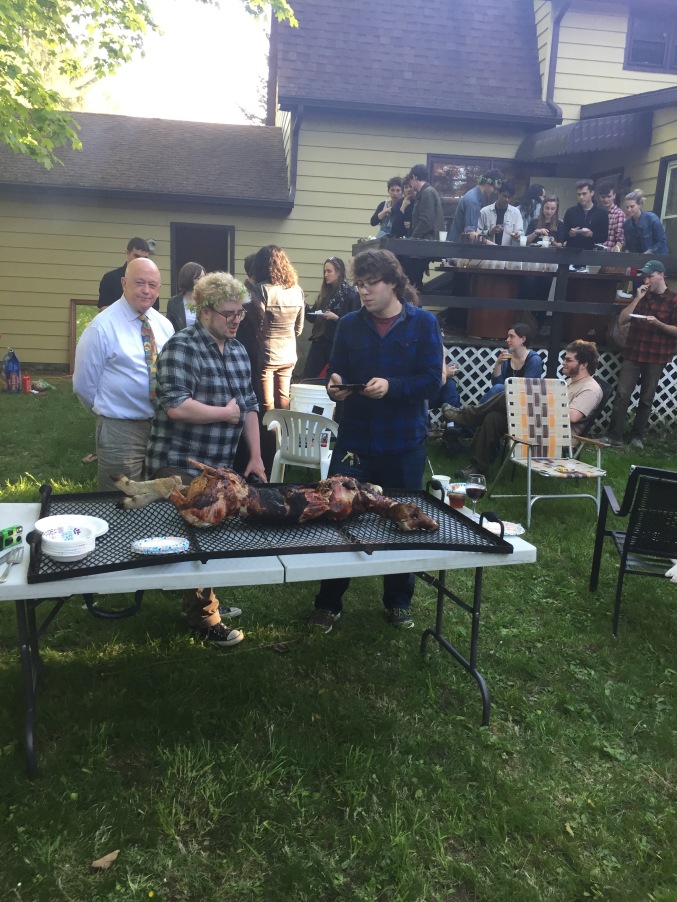“This is the display of the inquiry of Herodotus of Halicarnassus, so that things done by man not be forgotten in time, and that great and marvelous deeds, some displayed by the Hellenes [Greeks], some by the barbarians [non-Greeks], not lose their glory, including among others what was the cause of their waging war on each other.”
~ Opening line of Herodotus’s Histories, 5th century BCE
Two wars in the 5th century BCE might seem like an unusual theme for a dinner party, but the Greco-Persian Wars are among the most momentous events ever in ancient history. Faced with a common enemy, the fractious city-states of Greece were forced to unite for the first time as they fought for independence from the largest empire in the world. The Wars helped define the distinct quality of “Greekness” (Hellenikon) and set the stage for the flowering of Greek art, government and literature that would inspire later cultures up to the present day. They also helped seed our modern division of the world’s cultures into “East” vs. “West.” Herodotus, a Greek who grew up in the Persian Empire and whose home city played an important role in the conflict, devoted his life to researching the cause behind the Wars. The modern study of history, and even the word itself, are derived from the text Herodotus titled his Inquiries (Historiai), because it represented his inquiry into that most basic of loaded questions: “why don’t we get along?”
Luckily, there was nothing but harmony in the air last night at the Greek restaurant Nerai in Manhattan, which hosted a very special event in collaboration with myself and Eklektikon Wines. Together we developed an ancient-inspired menu, with Greek natural wine pairings drawn from ancient traditions.
To represent the conflict, we chose to serve Ancient Greek and Ancient Persian-inspired food side by side for each course. The restaurant’s chef spun off from our initial ideas to create recipes within the realm of what would have been possible for ancient chefs. Except for the refined sugar in the candied walnuts, all the ingredients are authentically ancient. Though we don’t have as much documentation of the Ancient Persian diet as the Ancient Greek one, the Persian side of the menu was informed by modern Persian cuisine as well as Ancient Greek sources like Xenophon’s Cyropaedia (a biography of the Persian conqueror Cyrus the Great) and the grocery lists of the Persian royal kitchens. This blog was one online source that provided a lot of useful background information.
I was so excited to see this event come together. Huge thanks to Nerai, Eklektikon, and to everyone who came and ate!














You must be logged in to post a comment.